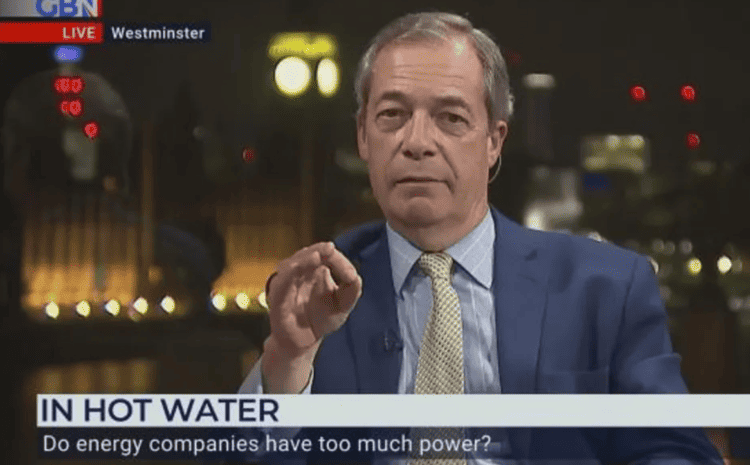Following a legal battle with GB News, the UK’s media regulator is proposing to tighten its rules on politicians appearing as presenters.
Earlier this year, a judge concluded that Ofcom’s current impartiality guidelines are badly worded, and do not clearly explain to broadcasters when and where politicians can present news or current affairs programming.
Ofcom is now recommending changing its code to clarify that politicians cannot act as newsreaders, news interviewers or news reporters in any type of programming.
Ofcom defines news programming as a newsreader presenting information in bulletins, and reporters or correspondents delivering packages and live reports. Current affairs content is interpreted as long-form programming, involving extensive discussions, analysis or interviews with guests.
The proposed rule change is under consultation until June 2025. Ofcom noted: “The distinction between news and current affairs content has become more blurred and the use of politicians presenting programmes has become more prevalent.”
In February 2025, Ofcom lost a legal case to GB News about whether the channel breached “due impartiality” rules. The case involved Conservative former MP Jacob Rees-Mogg, who was acting as a presenter on GB News while an MP.
Ofcom found GB News had breached impartiality rules without exceptional editorial justification. In separate programmes, Rees-Mogg had acted as a newsreader by reading out an Autocue summary of breaking news and engaging with a news correspondent.
GB News challenged Ofcom’s ruling. A judge at the high court found that the politician had produced news-related content, but within a current affairs programme. The judge concluded that Ofcom’s impartiality code was ambiguous about how politicians could present across different broadcast programming. Ofcom is proposing to clarify this in the rule change.
GB News, which has been the subject of several Ofcom investigations, has now accused the regulator of bias and demanded that it withdraw the proposals.
Due impartiality and public opinion
In recent years, new radio stations and television channels have begun pushing the boundaries of the UK’s rules on impartiality. High-profile politicians such as Nigel Farage have acted as presenters in programming that blurs the lines between news and current affairs.
Ofcom has so far allowed this on the grounds of freedom of expression and audience engagement. But the regulator has faced increasing pressure from politicians, lobby groups and the public to curb the creeping partisanship on TV and radio.
My new research project with colleagues at Cardiff University and broadcasters is exploring the impartiality of news across media platforms. We are also examining the implications of Ofcom’s rule change by asking whether the public wants politicians to act as broadcast presenters.
Ofcom has justified its decision to allow politicians to act as broadcast presenters by referring to audience research it commissioned in June 2024 that found no consensus against it.
However, the commissioned research by Ipsos UK was not an accurate representation of public opinion.
It involved a qualitative focus group study of 157 people across 29 online focus groups. Fifteen of the focus groups were frequent viewers or listeners of news and current affairs programmes, three had people who did not frequently watch or listen to these type of programmes, and 11 were with audiences of channels where politicians have regularly presented current affairs content.
In other words, the study drew on a highly constructed sample likely to support politicians presenting. Well over a third of the participants were represented by audiences who choose to regularly watch channels featuring politicians presenting.
Despite the skewed sample, according to Ipsos UK the “most prevalent opinion” – among focus group participants – “was feeling uncomfortable with politicians presenting current affairs content”.
This suggests that there was, in fact, a consensus of respondents concerned with politicians acting as presenters – and that consensus was opposed to politicians acting as presenters on TV and radio. This highlights the need for a representative study of public opinion on this issue.
What does the public really want?
Existing evidence suggests that public opinion is more against opinionated presenters than supporting partisanship in broadcasting. One poll in 2020 found more people opposed than favoured a Fox News-style channel to broadcast in the UK.
Academic research, including my ongoing work with colleagues, has consistently found the public prefers impartial news over partisan journalism. The Reuters Institute for Journalism has long found in representative surveys that the public rate neutral news well ahead of partisan reporting.
While Ofcom’s proposed latest amendment would tighten the rules on politicians acting as news presenters, it appears out of step with public opinion because many people feel uncomfortable with politicians presenting in any type of broadcast programme.
While GB News has recorded an increase in online views over recent years, its reach on broadcast media is relatively small. But the bigger impact of GB News could be in normalising political partisanship on TV and radio, and gradually pushing the boundaries of the UK’s regulations on broadcast impartiality.
At a time when political disinformation is rising and trust in journalism is declining, is it time for Ofcom to rethink giving politicians a bigger platform to promote their politics? In doing so, it should properly consult the public on how they want broadcasting to be impartially regulated.







